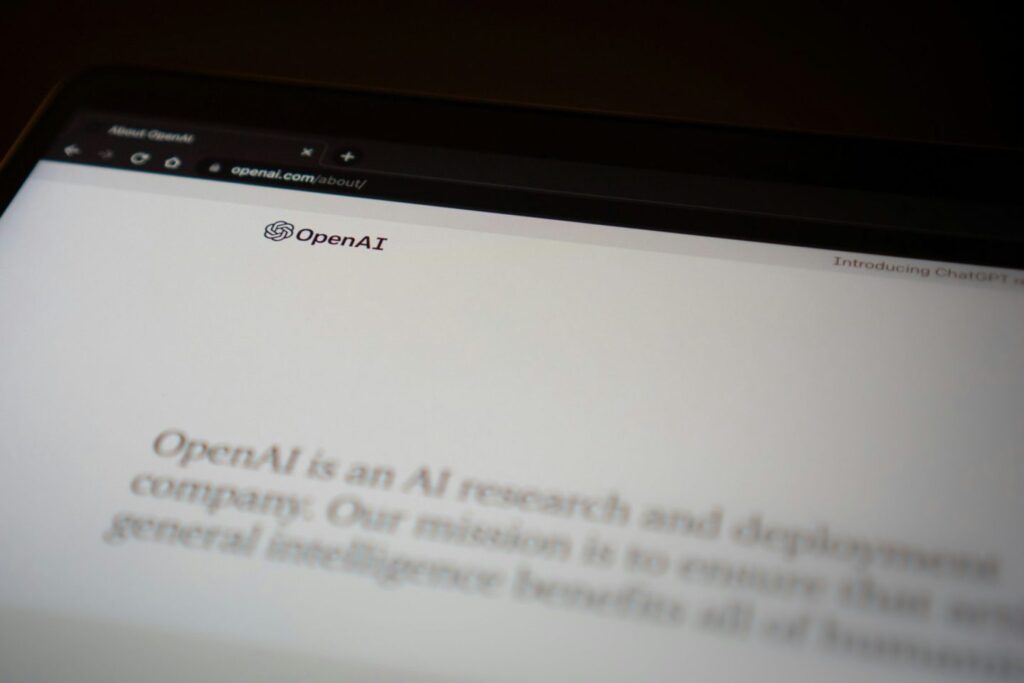Openai offers two versions of the chatbot: ChatGPT-4 and ChatGPT-3.5. Each meets a variety of needs.
While CHATGPT-4 is a more advanced option and improves accuracy and inference, CHATGPT-3.5 is still a solid option, especially for those looking for free AI tools. The right model depends on the needs of the user. It’s more powerful AI for complex tasks or a simple, accessible chatbot for everyday use.
Both models are built on the same basic AI concept, but there are significant differences. CHATGPT-4 offers more advanced inference, larger context windows, and multimodal features, making it more suitable for complex problem solving and content generation.
In contrast, ChatGPT-3.5 is designed for general purpose tasks and is free and easy to access. While ChatGPT-4 requires a subscription, CHATGPT-3.5 is free and makes it a practical option for casual users who don’t need advanced features.
Who should choose ChatGpt-4?
CHATGPT-4 is designed for users who need a more powerful AI model that can handle both text and image input. It can handle longer conversations and is useful for users who want thorough, contextual interactions. It also supports internet browsing on specific plans, and real-time information acquisition is limited.
However, this model is only available on subscription plans. Subscription plans start at $20 a month for individual users and go to high-rise options for teams and businesses.
These plans provide additional features such as a larger context window and better performance, but also require unnecessary financial commitments for users with basic AI needs.
Should I choose ChatGpt-3.5?
ChatGPT-3.5 remains a viable alternative for users looking for a free AI chatbot that doesn’t require a subscription. You can perform a variety of common tasks, such as answering questions, drafting texts, and providing conversational support.
Although it lacks multimodal functionality and has a smaller context window than CHATGPT-4, it is a reliable tool for many common uses. The setup process is simple. Users simply create an OpenAI account to get started using the model via the web or via the mobile app. It supports voice interaction on mobile devices, making it convenient for hands-free use.
Companies and professionals looking for scalable AI solutions may prefer CHATGPT-4, which offers more sophisticated response, advanced inference, and additional enterprise capabilities. The ability to process multimodal input, evaluate data, and manage longer conversations makes it a more effective tool for professional and research-based tasks.
Make the right choice: chatgpt-4 or chatgpt-3.5?
For those who decide between the two, choices depend heavily on intended use. CHATGPT-4 is a better option for users who need higher accuracy and enhanced inference. Suitable for professionals, researchers and businesses looking for more powerful AI tools. In comparison, ChATGPT-3.5 is ideal for users who need a simple, user-friendly AI model that can handle a wide range of tasks.
Are there better AI alternatives?
ChatGpt-4 and ChatGpt-3.5 are both competent AI tools, but they may not be everyone’s tea. Users looking for free multimodal AI tools with extensive real-time web search capabilities may find other models more appropriate. Similarly, those who need AI especially for coding and development may prefer models optimized for those tasks. Openai’s models are designed to be generic, but may not meet the needs of users who need highly specialized AI applications.
For those exploring alternatives, Google Gemini, Anthropic Claude and Microsoft Copilot are top competitors in the AI chatbot space. Google Gemini, formerly known as Bard, integrates deeply with Google search and offers powerful multimodal features. Many users appreciate its accessibility and freedom layer products.
Claude of Mankind is another option, especially for those focused on ethical AI development and security. It has one of the largest context windows available, and is suitable for long format content generation.
Meanwhile, Microsoft Copilot integrates with Microsoft 365 applications and Bing to provide an AI assistant that fits seamlessly into your productivity and development workflow.
(Photo by photo)
See also: Suspicion of data theft by Microsoft and Openai probe Deepseek
Want to learn more about AI and big data from industry leaders? Check out the AI & Big Data Expo in Amsterdam, California and London. The comprehensive event will be held in collaboration with other major events, including the Intelligent Automation Conference, Blockx, Digital Transformation Week, and Cyber Security & Cloud Expo.
Check out other upcoming Enterprise Technology events and webinars with TechForge here.



